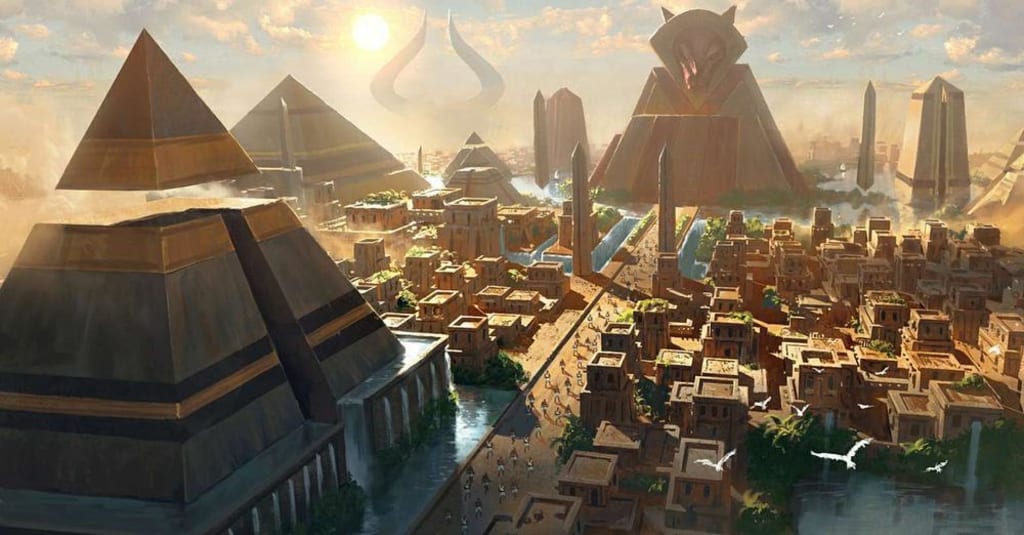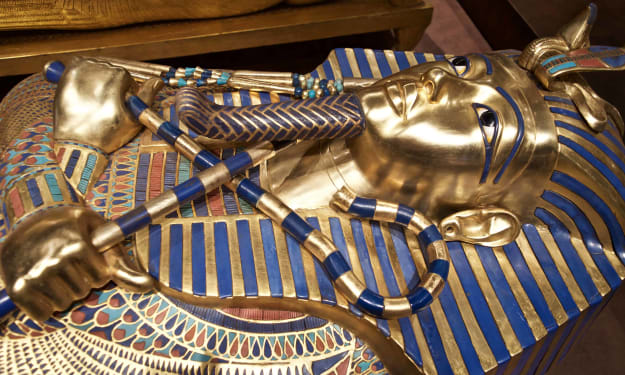Unraveling the Enigma
Exploring the Possibility of Civilizations Before Us

As we gaze into the vastness of human history, a question lingers on the edges of our collective curiosity: Were there civilizations that preceded our own? The history we are familiar with stretches back thousands of years, but the possibility of lost, forgotten, or even advanced societies existing before recorded history has intrigued scholars and enthusiasts alike. In this exploration, we embark on a journey through the annals of time, unraveling the enigma of potential civilizations that may have thrived on Earth long before us.
The Veil of Time:
Our understanding of history is often limited by the tangible evidence that survives the test of time. Ancient ruins, artifacts, and written records provide us with glimpses into the past, but the passage of millennia has a way of obscuring and erasing much of what once existed. The possibility of prehistoric civilizations challenges us to consider the gaps in our historical narrative, pushing us to explore what might be concealed beyond the veil of time.
Geological Clues and Anomalies:
Geological evidence has the potential to shed light on the possibility of civilizations predating our own. Some proponents of this idea point to geological anomalies, such as unexplained structures or patterns, as potential remnants of ancient human activity. From mysterious rock formations to enigmatic lines etched into the Earth's surface, these anomalies spark speculation about the existence of civilizations with advanced knowledge of engineering and geometry.
Furthermore, geological layers may hold clues in the form of artifacts or materials that challenge conventional timelines. While controversial, some researchers suggest that the discovery of out-of-place artifacts—anachronistic objects found in strata much older than their assumed origin—could point to the existence of advanced societies that have long since vanished.
Ancient Myths and Legends:
Throughout the world, myths and legends passed down through generations often contain elements that hint at advanced civilizations or beings with remarkable knowledge and capabilities. From the tales of Atlantis to the legends of advanced ancient technologies, these narratives have fueled speculation about lost civilizations that thrived in the shadows of prehistory.
While myths are typically treated as imaginative stories, some researchers argue that they might contain kernels of historical truth. Could the ancient stories of flying chariots or powerful, God-like beings be distorted echoes of real events involving advanced societies that once shaped the course of human development?
Unexplained Archaeological Finds:
Archaeological discoveries occasionally defy our current understanding of human history. In some cases, artifacts emerge that challenge the chronological order of technological development. Objects with intricate craftsmanship or advanced metallurgical techniques discovered in unexpectedly early contexts raise questions about the timeline of human technological progress.
For instance, the Antikythera Mechanism, an ancient Greek analog computer, astounded scholars with its complexity when discovered in a shipwreck dating back to the 1st century BCE. Such finds prompt us to reconsider the capabilities of ancient civilizations and whether we might be underestimating the sophistication of their knowledge and technology.
Lost Cities and Submerged Civilizations:
The Earth's surface has undergone significant changes over millennia, with sea levels rising and falling, and land masses shifting. The possibility of submerged or buried civilizations adds another layer of intrigue to the search for prehistoric cultures. Cities like Dwarka in India, long considered a mythological city from Hindu texts, have been discovered beneath the ocean's surface, suggesting that ancient settlements may have succumbed to natural disasters or rising sea levels.
The allure of sunken cities invokes visions of advanced societies lost to cataclysmic events, leaving behind submerged ruins that challenge our understanding of the depth and breadth of human history.
The question of whether civilizations existed before us beckons us to ponder the mysteries that lie beneath the surface of time. While the evidence for prehistoric advanced cultures remains speculative and often controversial, the exploration of geological anomalies, ancient myths, unexplained archaeological finds, and submerged civilizations adds a layer of complexity to our understanding of human history.
As we navigate the blurred boundaries between fact and speculation, it is essential to approach these inquiries with a healthy dose of skepticism and an openness to the possibility that our current understanding of history may be incomplete. The quest to unveil the secrets of potential civilizations before us is not merely an exercise in curiosity; it challenges us to reconsider the narrative of human development, encouraging a continuous exploration of the enigmatic chapters of our shared past. The pursuit of knowledge is a journey, and as we peel back the layers of time, we may yet uncover new insights that reshape our understanding of the rich tapestry of human existence.
Thanks for reading, please like and subscribe for more interesting contents and stories. Eat Happily, Live Happily.





Comments
Karthiga Elangovan is not accepting comments at the moment
Want to show your support? Send them a one-off tip.